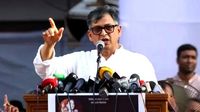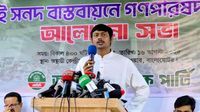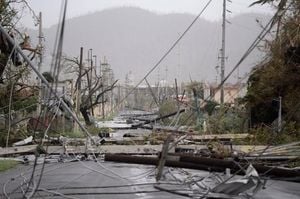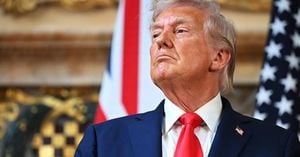Bangladesh’s political landscape is once again at a crossroads, as debates over the legitimacy of its constitution and the path forward intensify. On Saturday, August 16, 2025, two prominent political voices addressed the nation’s future, each offering sharply contrasting visions for resolving the country’s ongoing crisis. The Daily Sun reported that Salahuddin, a key political figure, described the recently drafted July Charter as a “social contract” that no party should break. Meanwhile, Nasiruddin Patwary, chief organizer of the National Citizen Party (NCP), called for a Constituent Assembly election as the only viable solution, challenging the current system and those who defend it.
At the heart of this debate is the July Charter—a document that, according to Salahuddin, represents more than mere political maneuvering. He insisted that it should be viewed as a binding agreement among all political factions, stating, “The July Charter is a social contract that no party should break.” Salahuddin’s warning was clear: any attempt to undermine this agreement through a controversial election could plunge Bangladesh into a deeper political crisis. The specter of instability looms large, as past elections marred by disputes and violence have left scars on the nation’s democratic fabric.
But not everyone shares Salahuddin’s faith in the July Charter. In a spirited address at the NCP’s temporary office in Banglamotor, Nasiruddin Patwary made it clear that he sees the country’s problems as rooted in the very structure of its governance. Speaking to party members and journalists, Patwary declared, “If any election is to be held in Bangladesh, it must first be a Constituent Assembly election.” For Patwary and his supporters, the current constitution is not simply outdated—it is fundamentally flawed, a “fascist structure” imposed by the Awami League and Sheikh Mujibur Rahman, and used as a “textbook” for establishing authoritarian rule.
Patwary’s critique was unsparing. He accused politicians of shifting their demands for election dates—from December 2025 to February 2026—calling into question their consistency and character. “They keep changing their positions,” he said, suggesting such vacillation only deepens public mistrust. The NCP leader’s frustration extends beyond politicians to the country’s top officials. He accused Chief Adviser Muhammad Yunus of “seeking guidance and performing prostration in London rather than before the people of Bangladesh,” a pointed jab at what he sees as foreign-influenced decision-making and a lack of accountability to the Bangladeshi public.
Patwary was especially critical of those involved in drafting the July Charter, alleging that they held secret meetings in London clubs and failed to prioritize the will of the people. He argued that real reform cannot be achieved behind closed doors or through deals struck far from the country’s streets and villages. Instead, he called for a new constitution, one created through open public discussion and a democratically elected Constituent Assembly. “Sixty percent of Bangladeshis desire reform,” Patwary asserted, urging not just politicians but also journalists, members of patriotic forces, and businessmen to join what he called the “new war” for a new constitution.
To bolster his argument, Patwary pointed to international precedents. He cited Nepal and Tunisia as examples of countries that successfully adopted new constitutions after holding multiple Constituent Assembly elections. According to him, these countries managed to break out of cycles of crisis by putting the power to shape the nation’s future directly in the hands of the people. Patwary believes Bangladesh can—and must—follow a similar path if it is to avoid repeating the political turmoil of the past.
The NCP’s vision is ambitious. Patwary outlined the party’s goals, noting that details would become clearer as their program unfolds. Central to their platform is the establishment of a Constituent Assembly and the facilitation of broad public discussions aimed at drafting a new constitution. The NCP’s “Citizen Committee” has been tasked with eight objectives, all geared toward this transformative process. Patwary left no doubt about his personal commitment, vowing to withdraw from public life if any credible corruption accusation is made against him. “The NCP would never compromise on issues concerning the Bangladeshi people,” he declared, drawing a line in the sand for both allies and adversaries.
Patwary’s criticisms extended to elements within the military and intelligence agencies, whom he accused of lacking common sense and misusing power. He argued that these institutions, too, have failed to understand the constitution or the needs of the state, contributing to the country’s ongoing instability. On the question of government legitimacy, Patwary warned that the current administration could face significant challenges—especially under Article 106 of the constitution—if it fails to deliver a new constitutional framework.
Yet, for all the stark differences in rhetoric and vision, there is a shared sense of urgency. Both Salahuddin and Patwary recognize that Bangladesh stands at a pivotal moment. Salahuddin’s call for respecting the July Charter is, at its core, a plea for stability and continuity. He fears that a controversial election—one not grounded in broad consensus—could tip the nation into chaos. Patwary, on the other hand, sees the existing order as the root of the problem and believes only radical change can secure lasting peace and democracy.
The broader public, meanwhile, finds itself caught between these competing narratives. Many Bangladeshis are deeply concerned, especially those whose loved ones were “martyred or injured in the mass uprising.” Patwary gave voice to their anxieties, questioning whether the sacrifices made during past struggles are truly being honored by the current political establishment.
As the debate rages, the stakes could hardly be higher. Bangladesh’s history is replete with moments of hope and heartbreak—from the promise of independence to the pain of political crackdowns. The memory of “1/11,” a period of military-backed emergency rule, still haunts the national consciousness. Patwary argued that the absence of genuine multi-party democracy has left the country vulnerable to such episodes of chaos. The challenge now is to find a way forward that honors the aspirations of the people while avoiding the pitfalls of the past.
Whether through the preservation of the July Charter or the radical overhaul of the constitution, one thing is clear: Bangladesh’s political future is being shaped in real time, with the outcomes of these debates likely to resonate for years to come. The voices of Salahuddin and Patwary, though sharply divergent, reflect the passions and frustrations of a nation in search of a new beginning.





